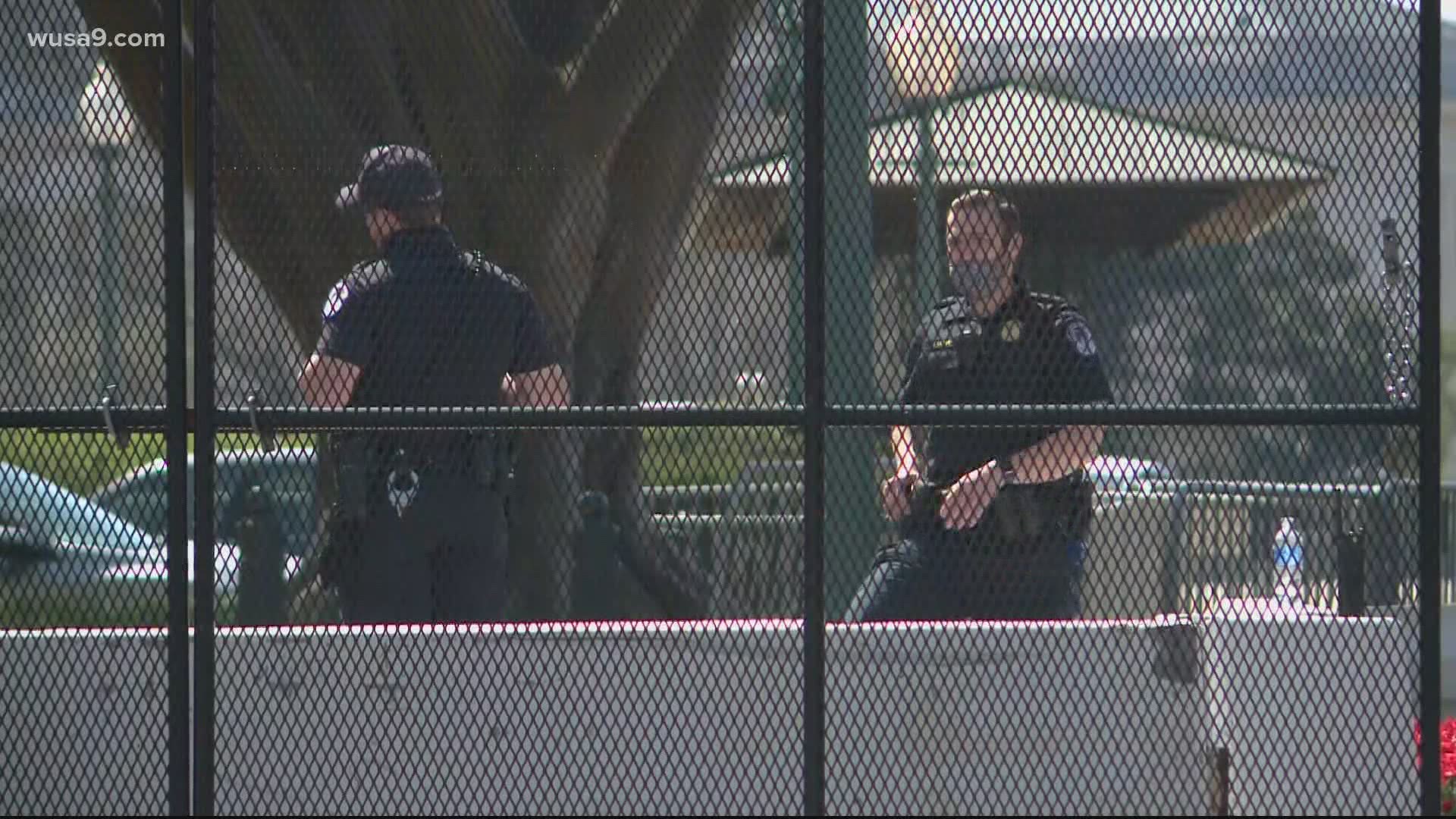WASHINGTON — The recent attack outside the Capitol once again raises security questions that could prolong the decision to fully reopen the grounds.
Capitol Police Officer Billy Evans was killed on Friday after a suspect rammed a vehicle into him at a security checkpoint on the Northside of the Capitol complex. Authorities said the suspect stepped out of the vehicle and ran toward the officers with a knife but was gunned down.
The incident comes just weeks after security officials began scaling back security and removing the outside perimeter installed after the Jan. 6 insurrection. While the fencing around the outer perimeter was taken down, the inner perimeter fence surrounding the Capitol building remained in place while law enforcement agencies work to strengthen security.
Over the weekend, crews could be seen reinforcing the fence and installing new barriers at the site where Evans was hit.
In a press conference meeting on Friday, Rep. Tim Ryan (D-Ohio), chairman of the House Legislative Branch Appropriations Subcommittee overseeing security and the Capitol, said members will be "reviewing everything" including fencing in terms of security.
"The big concern I know for a lot of people are these kind of lone wolf attacks," Ryan said. "It’s very, very early, we don’t want to comment too much on it, but from my vantage point, I just think we’ve got to be very careful as we move forward that we can’t get too far ahead of ourselves without knowing we have the ability to protect the Capitol."
Ryan also said the effort to properly secure the Capitol will need a bipartisan effort.
Since the insurrection, pressure was mounting from both residents and lawmakers to ease the military grip surrounding Capitol grounds. D.C. Del. Eleanor Holmes Norton introduced a bill that would ban permanent fencing, which she described as "security theater." Norton had scheduled an event to discuss alternatives to permanent fencing early this next week, but decided to postpone it following the death of Ofc. Evans.
"Permanent fencing would send an un-American message to the nation and the world, by transforming our democracy from one that is accessible and of the people to one that is exclusive and fearful of its own citizens,” Norton said in an interview with WUSA9 in February.
Ryan supported the recommendations in a new task force report led by Lieutenant General Russel Honoré. The report gave a list of recommendations from more law enforcement to a mobile fence.
"As the fencing comes down, we recommend it be replaced with a mobile fencing option that is easily erected and deconstructed and an integrated, retractable fencing system in the long term to secure both the Capitol Building and Congressional office buildings," the report read.
Acting U.S. Capitol Police Chief Yogananda Pittman has called for permanent fencing and backup security at the Capitol to prevent another riot.
However, residents in the Capitol Hill neighborhood, while supportive of better security and safety measures in place, fear what permanent changes could mean to them in the long run.
"I don't mind more barriers that go up and down but permanent fencing so that people can't enjoy the Capitol doesn't work in this big neighborhood," resident Diana Kreiss said.
"I'm sure there will be lots of pressure to maintain and even strengthen the fencing around the Capitol," resident Carol Edwards added.
The review by the task force also found the department was "understaffed, insufficiently equipped and inadequately trained."
Sign up for the Get Up DC newsletter: Your forecast. Your commute. Your news.
Sign up for the Capitol Breach email newsletter, delivering the latest breaking news and a roundup of the investigation into the Capitol Riots on January 6, 2021.


